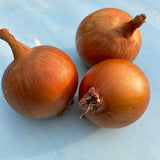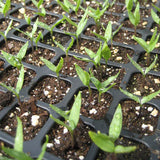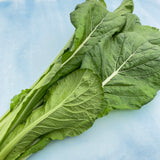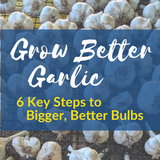
Benign Neglect Revisited
Remember when you were a little kid, and your parents--weary from the burden of maintaining ever watchful eyes--turned aside for a while, tending to their own needs? Perhaps they engaged in phone conversations, or knitting, or sports on TV, or tinkering on engines. At these moments, your young mind expanded. You discovered the world, you became resourceful, you found ways to meet your needs--and learned skills that built upon each other to give you some measure of independence.
All of the dependent beings we tend benefit from this benign neglect, including your garden.
 Show your garden some love and let go (a bit!)
Show your garden some love and let go (a bit!)With the extremely dry weather we've been having and our limited irrigation abilities, we've been worried about the farm being too dry. This has been a case of forced neglect. It's been surprising to see that many of our plants, tomatoes, peppers, flowering lettuces, eggplants, zinnias and others have learned to dig deep and eek out water from the soil with minimal watering from us. In fact, some of our seed crops seem to be happier with the dry surface of the soil and no over-head rains.
We've also nearly run out of compost at this time of year--a common problem of mid- to late-summer gardening. We like to sow and transplant into well composted beds, but with our compost budget maxed out, we're switching to our more cost-effective organic fertilizer mix and trusting that the previous applications of compost will provide enough humus-y texture to support healthy plants. So far, so good! (Our organic, veganic fertilizer mix is a DIY concoction of 4 parts soybean meal, 1 part rock phosphate, 1 part kelp meal, and 1 part ground lime. All of these ingredients can be found or ordered through a feed store, except for the rock phosphate, which can be found at good garden centers.)
Like parenting, gardening is most fun when you let go a bit and relax. Also like parenting, you sometimes have to make do with limited resources. But don't fret! Just do your best to give your beloved crops what they need--but let 'em fend for themselves a bit, too.






